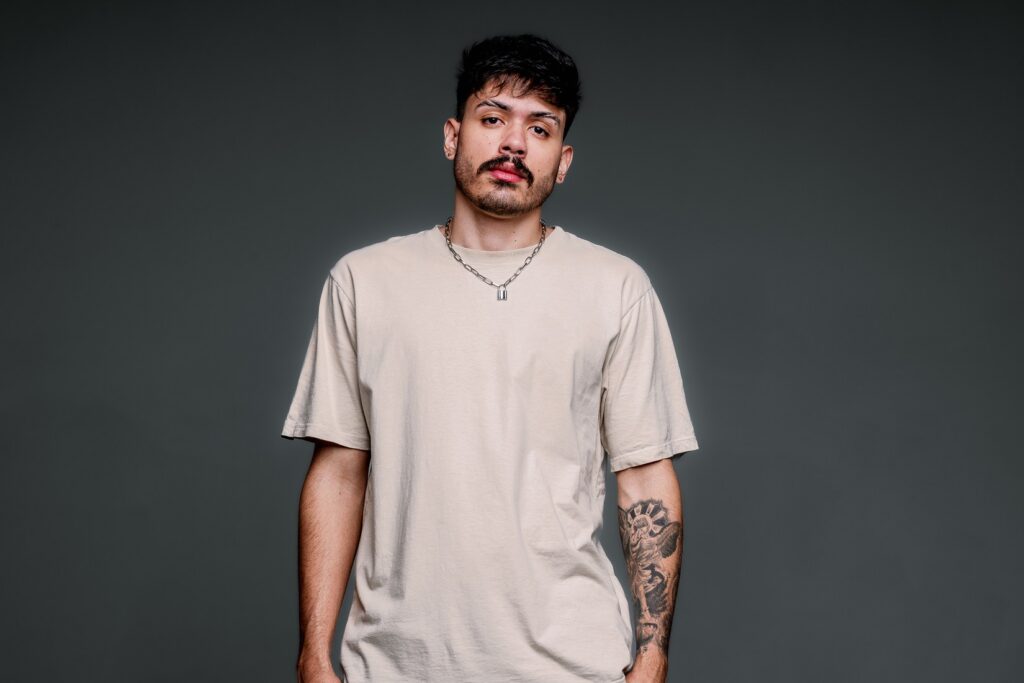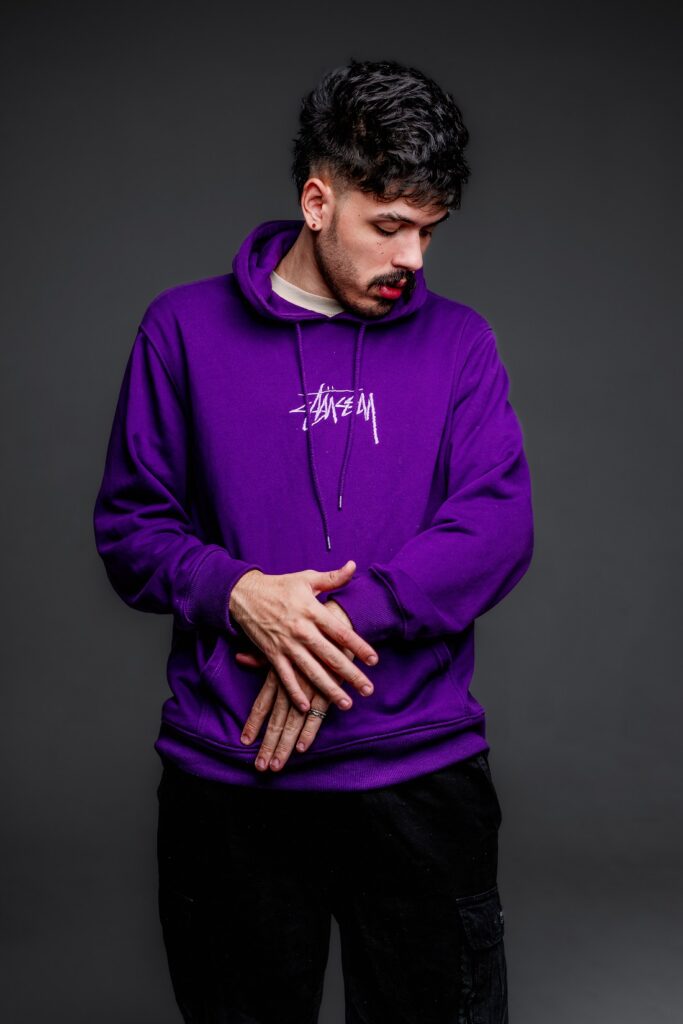One of the most promising Brazilian acts stopped by for a friendly chat.
Today, we bring you a very interesting interviewee. Ragie Ban, a gifted DJ and producer, is making a name for himself in both the Brazilian and global music scenes. At just 22 years old and with three years under his belt, Ragie has already built up a remarkable CV, gaining support from prominent artists and releasing tracks on well-respected record labels. His music crosses genres, blending aspects of Techno, House, and others.
This young lad is one of those names that we’re sure we’ll see much more often in the future as a shaper and trailblazer of the Dance scene. And right now, in this stage where it all points to him blowing to new heights, we’ve had the pleasure of sitting down with him for an interview.
Touching upon topics such as early and current influences, piloting through burnout, concerns, music production, and then some, sit back and read on, as we compile the voice of he who’s sure to be the next global sensation in just a few releases’ time: Ragie Ban.
The Interview
(Please note, the bolded text represents a question, while the paragraph(s) following it represent Ragie’s answers.)
Which artists or musical movements have most profoundly shaped your sound and approach to music production?
The artists that have most profoundly shaped my sound and approach to music production are Kyle Watson, Bruno Furlan, Illusionize, Claude VonStroke, Green Velvet, Mahony, Gabe, Sosa, Cloonee, Michael Bibi, Pawsa, and Dennis Cruz. Each of them has influenced me in different ways—whether it’s their grooves, energy, or unique take on house and tech. Their work has inspired me to develop a style that blends powerful basslines, hypnotic rhythms, and elements that always connect with the dancefloor.
You’ve got a very distinct snare, which evokes both an 80s feel and an early years Soulwax vibe. How did you get to that specific sound, and do you feel like it’s a signature element of yours?
Getting to that sound was a process of experimentation. I’ve always loved the nostalgic vibe of 80s drum hits, but I wanted to bring something that feels modern and fits the current dancefloor context. I spend a lot of time selecting and designing the timbre, adding layers, parallel compression, and subtle effects to give it that signature punch. Over time, I think this type of snare has become one of my trademarks because it carries both a nostalgic weight and an energy that connects well with today’s audience.
Your tracks have a compelling minimalist approach, where each element holds a significant role without overcrowding the mix. Could you give us a bit of an insight into how you decide which elements are essential, how do you avoid just adding a ton of stuff into the songs?
My minimalist approach comes from the philosophy that less is more. I always start by choosing a central element—whether it’s the groove, a vocal, or a bassline—and build around it. I constantly ask myself if each sound truly adds value to the track or if it’s just taking up space.
I avoid adding too much by listening to the track repeatedly and removing elements to see if it still works without them. The goal is for every part to have a clear purpose, with everything working together to create a bigger impact rather than relying on excessive layers. Simplicity allows the details to stand out and gives the music room to breathe on the dancefloor.
Thinking back to when you were first starting out, did you have any significant fears or uncertainties about pursuing music? And how do they compare to what you’ve achieved over the years?
When I first started out, there were so many uncertainties. My biggest concern was whether I could stand out in such a competitive market and if my sound would be accepted by the audience. There was also the fear of not being able to balance creativity with the demands of the industry, like deadlines and live performances.
Looking back now, I see that those fears were essential in keeping me motivated and focused on constant growth. Over the years, I’ve achieved things I never thought were possible, which has given me more confidence—but also brought new challenges, like continuing to innovate while staying authentic. Even so, my passion for music has always outweighed any doubts.
How important is experimentation to you? Do you recall a time when an unexpected discovery during production significantly shaped a song of yours?
Experimentation is absolutely essential for me. It’s what keeps the creative process exciting and unpredictable. One moment that really stood out was during the production of a track where I accidentally used a glitch effect on a vocal. The result was something distorted and dark, yet incredibly captivating. That “mistake” ended up becoming the central element of the track, shaping the whole vibe around it. Since then, I’ve started using the glitch effect more in my productions.
These unexpected discoveries are what make production special. They remind me that sometimes the best ideas come when you allow yourself to step out of the conventional and embrace the unpredictable.
How do you deal with creative blocks or moments when you feel uninspired?
When I face creative blocks, I try to disconnect a bit from the production process. This might mean listening to music outside my usual style, watching movies, or even stepping out to connect with other experiences, like nature or spending time with friends.
Sometimes, simply changing the studio environment or experimenting with something completely different, like playing acoustic instruments or exploring new plugins, helps bring fresh ideas.
The most important thing for me is not to force the process. Creativity is cyclical, and I’ve learned that these moments of pause can be just as valuable as periods of intense production.
What advice would you give to aspiring musicians who are just starting out?
If I had to give advice, it’d be: have patience and don’t give up. Making music is a journey that takes time, practice, and a lot of persistence. Don’t be afraid to mess up or try new things—that’s where you learn and find your sound.
Learn the basics, like theory and production, but trust your instincts. Trying to copy what’s trending might work for a bit, but what’s really going to set you apart is being authentic and putting your personality into your music.
Also, connect with people in the scene. Networking and exchanging ideas with other musicians is just as important as leveling up your skills. And never stop learning because music is always evolving.
Final Words
Thank you so much to Ragie Ban for this kind interview. It’s always fun to speak with artists at this stage of their careers, it’s like lighting up a firework, watching it launch into the sky, and you’re amidst the silence waiting for it to go off. It’s just a matter of time before Ragie is on the cover of many of your music magazines. When that moment comes, remember he’s been in the cover of ours before. Wink wink.





